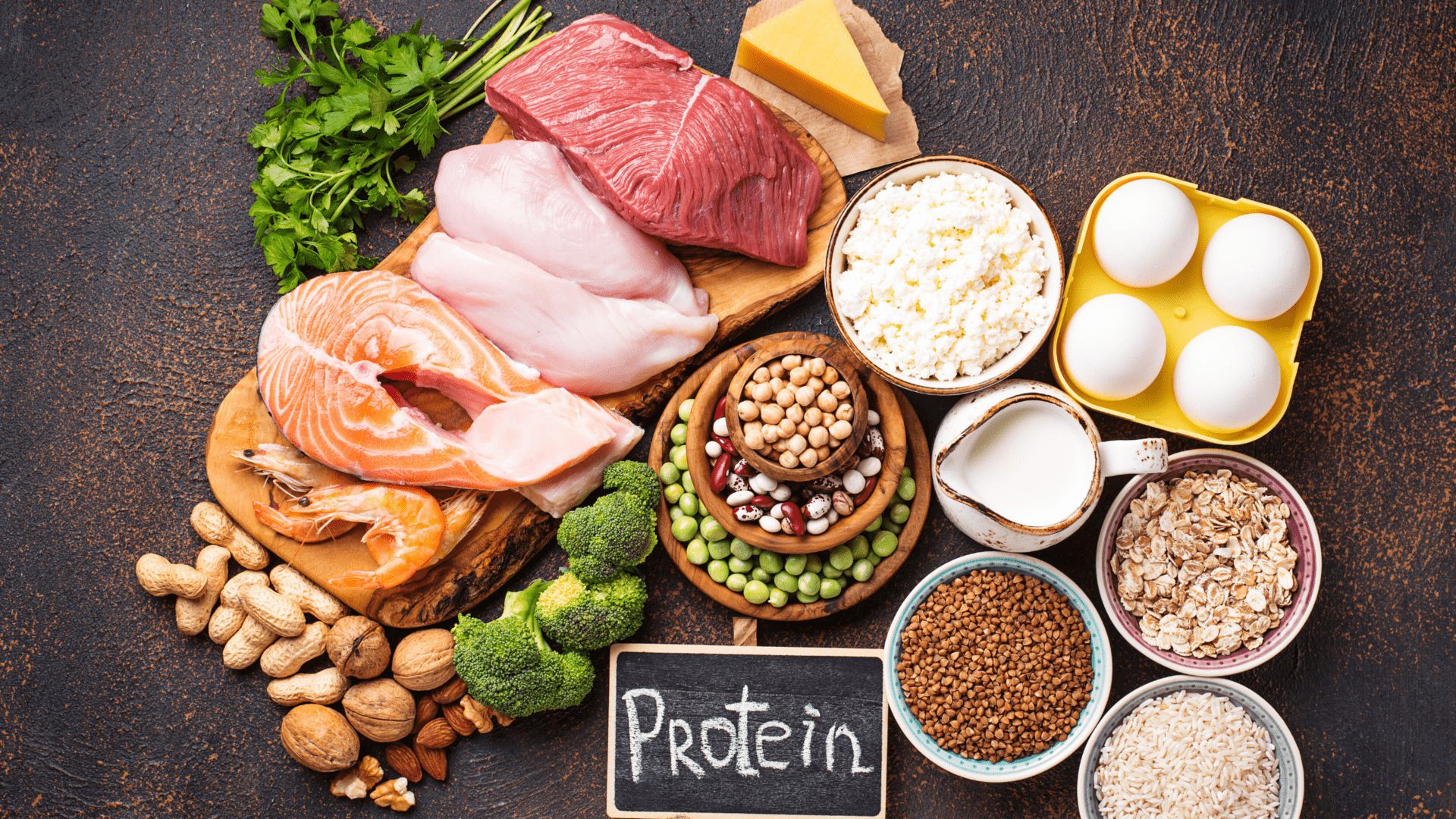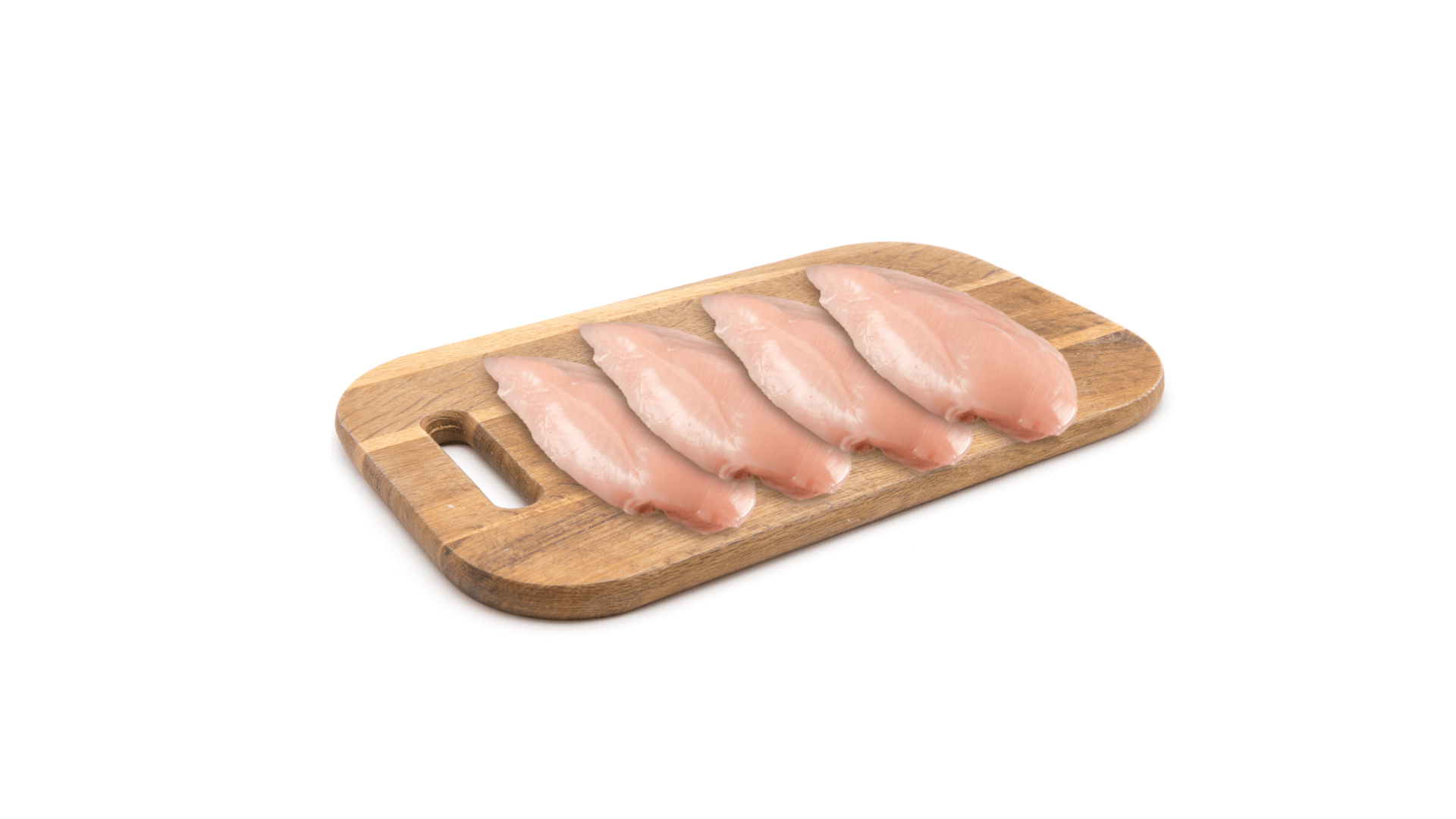
Protein—everyone's buzzing about it! But seriously, have you ever wondered, 'How much of this stuff should I actually eat to build muscles?' We’ve all heard the hype—protein's like the superstar of nutrients, building muscles, boosting immunity, you name it. Yet, trying to figure out how much you really need and how to get it can feel like diving into a bottomless info pit. So, let's break it down and help you grasp how much protein you need for muscle building and how to pump up your intake for better health and fitness goals!
Protein Intake for Muscle Building
Determining Your Protein Needs for Muscle Building (1.6g - 2.2g):
When you're thinking about building those muscles with protein, for most healthy individual is around 1.6 grams per kilogram of body weight (Morton et al., 2017). That amount usually does the trick for muscle repair and growth, especially if you're hitting the gym regularly.
But here's the thing – everyone's protein needs can be different. Some might need more, like up to 2.2 grams per kilogram of body weight, especially in certain situations such as -:
 1. Lean Body Mass
1. Lean Body Mass
Individuals who have got more muscle and are really into lifting weights and bulking up actually need more protein to help their muscles heal and grow.
 2. Exercise Level
2. Exercise Level
If you're pushing hard in your workouts, doing endurance or strength training, your body might need more protein to help those muscles recover and get stronger.
 3. Age
3. Age
As we get older, our bodies might need more protein since there's a bit more muscle loss happening. So, for older adults, kicking up the protein intake can help maintain those muscles better (Chernoff, 2004).
To calculate a personalized protein goal
Assess Your Weight: Begin by identifying your weight in kilograms. This is your starting point.
Multiply accordingly: Multiply your weight by the recommended protein intake per kilogram.
Let's say you're about 50 kg and assuming you need 1.6 grams per kg. That means you'd need around 80 grams of protein a day to help those muscles grow
[50 kg x 1.6 g/kg = 80 grams of protein per day]
Whereas, if you weigh around 70 kg and assuming you need 1.6 grams per kg, that would be about 112 grams of protein a day to support muscle building.
[70 kg x 1.6 g/kg = 112 grams of protein per day]
Adjust Based on Goals: Remember, these protein numbers can vary depending on your goals and lifestyle changes. Your protein needs are based on what you're aiming to achieve whether its muscle gain, weight loss, or simply maintaining your current health. It's like giving your muscles that extra support they need! It's all about finding what works best for you and your body!
What does it look like?
Ever tried picturing your protein intake while hitting the grocery store? Let's give you a rough idea of what protein sources might look like to hit your daily protein goals:

Here's a simple way to picture it- If you're aiming for 80 grams of protein, think about 4 chicken breasts (raw weight around 600 grams). And if you need around 112 grams, that's like having 5 chicken breasts, which weighs about 840 grams.
Increasing Protein Intake
Boost your Protein Intake
Try adding lean meats like chicken, turkey, and fish to your meals. Eggs are awesome too, giving you about 12-14 grams of protein per two large eggs. If you're into plant-based foods, go for beans, lentils, tofu, tempeh, quinoa, nuts, and seeds – they're fantastic protein sources for vegetarians and vegans.
Snack Smart
For snacks, go for protein-rich options like Greek yogurt or cottage cheese, packing around 15-20 grams of protein per serving. Or grab some veggies with hummus to keep the hunger at bay between meals.
Supplementation
If hitting your protein goals with food alone is tough, you might want to consider protein shakes. There are plenty of options like whey, casein, or plant-based protein powders.
Do I need to exercise?
Definitely! Protein is awesome for building and fixing muscles, but exercise kicks it all into gear. Without that workout magic, even a protein-packed diet won’t work out as well.
It's great to do strength training at least three times a week. Things like lifting weights or doing bodyweight workouts put the right kind of pressure on your muscles, making them grow and get stronger. When you combine this workout boost with enough protein, that's when your body really gets into muscle-building mode!
Tips for Success
Meal Prepping: Plan your meals ahead of time to make sure you’ve got enough protein to hit your daily intake.
Tracking: Track your protein intake to know how much you’re getting in. lots of apps out there that can help with that!
Keep Hydrated: Stay hydrated as it helps your body digest and use up the protein
Talk to an expert: For personalized tips, chat with a Dietitian or Nutritionist.
The bottom line? Protein needs vary, but it's about ensuring you get enough. Mix and match your protein choices to create a balanced, protein-packed diet that suits your lifestyle and tastes!🌱💪🥩
References
- Chernoff, R. (2004). Protein and Older Adults. Journal of the American College of Nutrition, 23(sup6), pp.627S630S. doi:https://doi.org/10.1080/07315724.2004.10719434.
- Morton, R.W., Murphy, K.T., McKellar, S.R., Schoenfeld, B.J., Henselmans, M., Helms, E., Aragon, A.A., Devries, M.C., Banfield, L., Krieger, J.W. and Phillips, S.M. (2017). A systematic review, meta-analysis and meta-regression of the effect of protein supplementation on resistance training-induced gains in muscle mass and strength in healthy adults. British Journal of Sports Medicine, [online] 52(6), pp.376–384. doi:https://doi.org/10.1136/bjsports-2017-097608.

 1. Lean Body Mass
1. Lean Body Mass 2. Exercise Level
2. Exercise Level 3. Age
3. Age